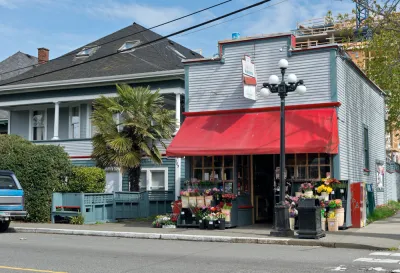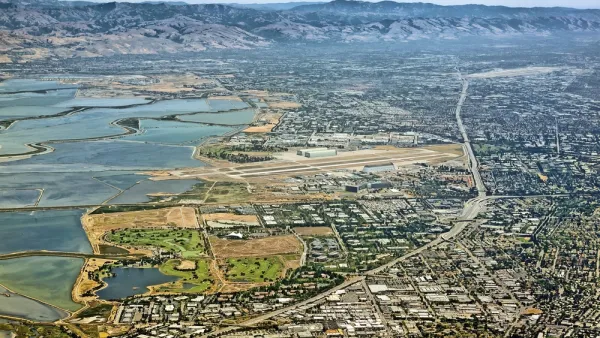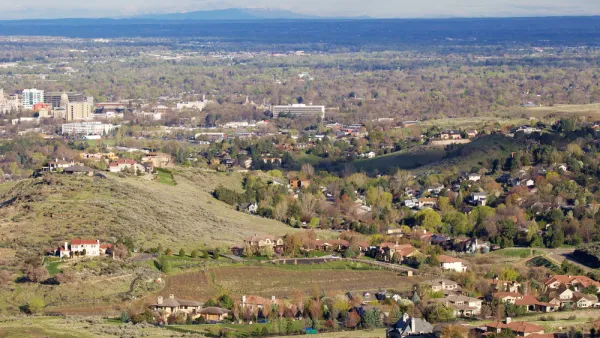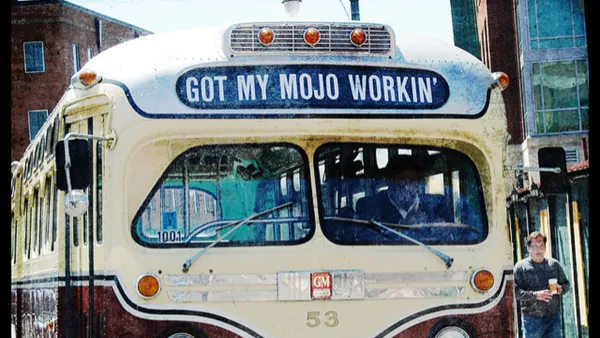A call for zoning reforms that legalize commercial buildings in residential neighborhoods in Seattle—a building type and land use that has fallen out of favor all over the United States.

Sam Kraft, principal of D3 Architects and instructor of architecture at the University of Washington, writes a guest article for The Seattle Times that begins by singing the praises of two building types that are no longer legal in Seattle (like in most cities in the United States): fourplexes and corner stores.
A few corner stores predate the 1923 zoning code written by Harland Bartholomew that implemented a widespread preference for single-family detached housing:
There are a small handful of stores and cafes like Boulevard Grocery (now called Seven Coffee Roasters Market & Cafe) speckled throughout the city’s residential neighborhoods. They have all been in continued operation since at least 1922, weathering the depression, WWII and the Vietnam War, the oil embargo, the Great Recession and now online commerce. Why have they been able to maintain business for 100 years? Because they are beloved local places that connect us — to Seattle’s past; to each other; to the food, drink, art, culture and life of a specific neighborhood. They create more activity on the sidewalk, reducing crime and cars and increasing walking, biking, skipping, scootering and maybe even laughing.
Kraft's appeal is simple: "Let's allow corner stores back into our neighborhoods." The article includes a call to action to appeal to local elected officials with the power to change the city's land use code. An architect in Portland, Oregon made a similar case in 2020, calling for "Accessory Commercial Units," which could be retrofitted for some of the same benefits described by Kraft here.
FULL STORY: Bring back corner stores to create a connected, equitable city

Analysis: Cybertruck Fatality Rate Far Exceeds That of Ford Pinto
The Tesla Cybertruck was recalled seven times last year.

National Parks Layoffs Will Cause Communities to Lose Billions
Thousands of essential park workers were laid off this week, just before the busy spring break season.

Retro-silient?: America’s First “Eco-burb,” The Woodlands Turns 50
A master-planned community north of Houston offers lessons on green infrastructure and resilient design, but falls short of its founder’s lofty affordability and walkability goals.

Test News Post 1
This is a summary

Analysis: Cybertruck Fatality Rate Far Exceeds That of Ford Pinto
The Tesla Cybertruck was recalled seven times last year.

Test News Headline 46
Test for the image on the front page.
Urban Design for Planners 1: Software Tools
This six-course series explores essential urban design concepts using open source software and equips planners with the tools they need to participate fully in the urban design process.
Planning for Universal Design
Learn the tools for implementing Universal Design in planning regulations.
EMC Planning Group, Inc.
Planetizen
Planetizen
Mpact (formerly Rail~Volution)
Great Falls Development Authority, Inc.
HUDs Office of Policy Development and Research
NYU Wagner Graduate School of Public Service




























